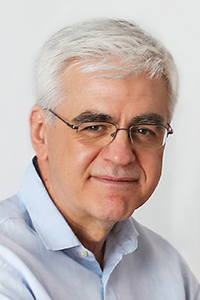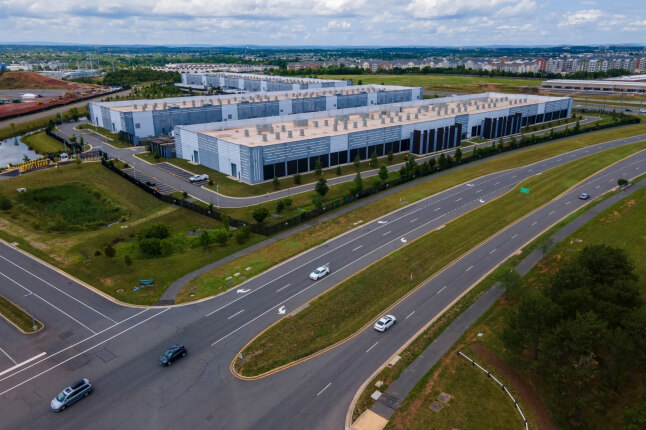News
The new graduate secondary field in CSE will focus on topics like hemodynamics, or the simulation of blood flow in real arteries, including red blood cell motion.
Cambridge, Mass. – June 24, 2011 – Beginning in fall 2011, the Harvard School of Engineering and Applied Sciences (SEAS) will offer a secondary field in Computational Science and Engineering (CSE) to graduate students across the Harvard Graduate School of Arts and Sciences (GSAS).
An exciting and rapidly evolving field, CSE exploits the power of computation as an approach to major challenges on the frontiers of natural and social science and engineering.
In keeping with Harvard's emphasis on foundational knowledge, the new program will focus on crosscutting mathematical and computational principles. It will emphasize active learning, allowing students to implement and test these techniques in individual and collaborative projects.
“Computation is everywhere today, but huge computational challenges remain unsolved. New algorithms, architectures and techniques for modeling and simulation are vitally needed to advance science and engineering, social science, and medicine,” says Efthimios “Tim” Kaxiras, Director of the new Institute for Applied Computational Science (IACS) at SEAS and leader of the faculty committee that is designing and implementing the new program. “CSE makes for an ideal secondary field option as the concept was expressly introduced to broaden a student’s intellectual reach and highlight our commitment to collaboration.”
To design the secondary field program and the new courses in CSE, Kaxiras, who is also the John Hasbrouck Van Vleck Professor of Pure and Applied Physics in SEAS/Physics, worked with a SEAS faculty task force and an advisory group comprising faculty across Harvard and experts from industry and national laboratories.
The secondary field in CSE will be available to any student enrolled in a Ph.D. program in GSAS upon approval of a plan of study by the CSE Program Committee and the director of graduate studies in the student’s home department. The requirements include newly developed core courses in Applied Mathematics and Computer Science.
Completion of the secondary field will equip students with rigorous computational methods for approaching scientific questions. Such approaches include mathematical techniques for modeling and simulation of complex systems; parallel programming and collaborative software development; and methods for organizing, exploring, visualizing, processing and analyzing very large data sets.
“The new CSE program, which meets a growing demand for advanced computational training among students across many disciplines, will weave together the remarkable resources of our departments and schools,” says Allan Brandt, Dean of the Graduate School of Arts and Sciences; Professor of the History of Science; and Amalie Moses Kass Professor of the History of Medicine. “Increasingly, our PhD students want to move fluidly across the boundaries of discipline and department, and programs like this give them the tools and expertise they need to do so."
Admission into the CSE secondary field will be through an application submitted to the SEAS Student Affairs Office. Students interested in the Secondary Field should consult with their departmental director of graduate studies no later than the first semester of the third year of study.
Applications must be submitted to the SEAS Office of Student Affairs in the term prior to the one in which a student wishes to begin the program. The deadline for entry in the fall term is March 1st and the deadline for entry in the spring term is October 1st. Late applications will not be accepted.
“We are thrilled to launch an educational program that fills a critical need,” says Cherry A. Murray, Dean of SEAS; John A. and Elizabeth S. Armstrong Professor of Engineering and Applied Sciences; and Professor of Physics. “By combining doctoral studies in many domains with intensive computational training and experimentation, students will blaze new trails. They will become the future leaders who will design new approaches and architectures needed to analyze massive streams of data, model the dynamics of large biomolecules, or understand the complex workings of the global economy.”
For more information:
- Visit the IACS website
- Visit the GSAS website
###
About secondary fields at the Harvard Graduate School of Arts and Sciences
PhD students in the Harvard Graduate School of Arts and Sciences (GSAS) can elect to complete a secondary field in one of 13 areas of study — including the two newest secondary fields, critical media practice and science, technology, and society.
These elective fields, which are listed on students’ transcripts when completed, are a way to broaden the scope of a graduate program, enhancing one’s professional reach while fostering new collaborations.
Each secondary field consists of a set of four or five graduate courses in a discipline, interdisciplinary area, or intellectually coherent subfield. They are seen by many PhD students as attractive options — a way to further scholarly goals, enrich their research, and enhance the competitiveness of their studies at Harvard. They also foster new scholarly communities and create an opening for the kind of unexpected interactions — and collaborations — that often fuel innovative discoveries. Learn more here.
About the Institute for Applied Computational Science
The Institute for Applied Computational Science was established in September 2010 by the Harvard School of Engineering and Applied Science (SEAS). It is charged with launching a unique interdisciplinary education and research program in computational science and engineering (CSE).
The new Institute will:
- create an intellectual home for faculty and students applying computational methods to major challenges in science
- enhance existing courses in applied mathematics and computation and develop new computational science courses, activities and research opportunities for Harvard students from across the sciences
By establishing the Institute, SEAS has committed to fostering graduate training and research in applied computational science, infusing the curriculum with new courses and student research opportunities that will focus on the use of computation to power discovery and innovation.
How to Apply
Download the application
Contacts/More Information
- Application process
Marie Dahleh, Assistant Dean for Academic Programs at SEAS
- Academic program
Rosalind Reid, Executive Director of IACS and Assistant Dean for External Programs at SEAS
Topics: Computer Science, Applied Mathematics
Cutting-edge science delivered direct to your inbox.
Join the Harvard SEAS mailing list.
Scientist Profiles
Efthimios Kaxiras
John Hasbrouck Van Vleck Professor of Pure and Applied Physics




